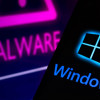Microsoft buys Nokia handset unit: It's an end-to-end world after all
Remember when Apple lived and died by vertically integrated software and hardware, while Google and Microsoft stood their philosophical ground and created open and not-very-open software (respectively) in order to proliferate across myriad devices and gobble up market share in the doing?
So, that seems over now. Suddenly Google and Microsoft are intensely in the hardware game. Google creates custom hardware to show off and expand its Android and Chrome OS powers, buys Motorola Mobility and risks all kinds of partner wrath to put Google bells and whistles on the new Moto X. And then Microsoft goes and drops $7 billion on Nokia's device and services division in a last-ditch effort to power Windows Phone to success by exerting total control. It would seem that end-to-end has won.
I guess this leaves Apple laughing all the way to the bank, right? The company that pioneered the conversation about controlling every part of the customer experience seems to have been proven right on a grand scale. The company that refused to allow Mac clones to be sold, refused to license OS X, and faced down at least 142,365 declarations that its closed systems would inevitably die seems to have, in fact, been right about this one thing: a tightly controlled, well designed, relatively closed-off end-to-end system does generally produce better products.










































































